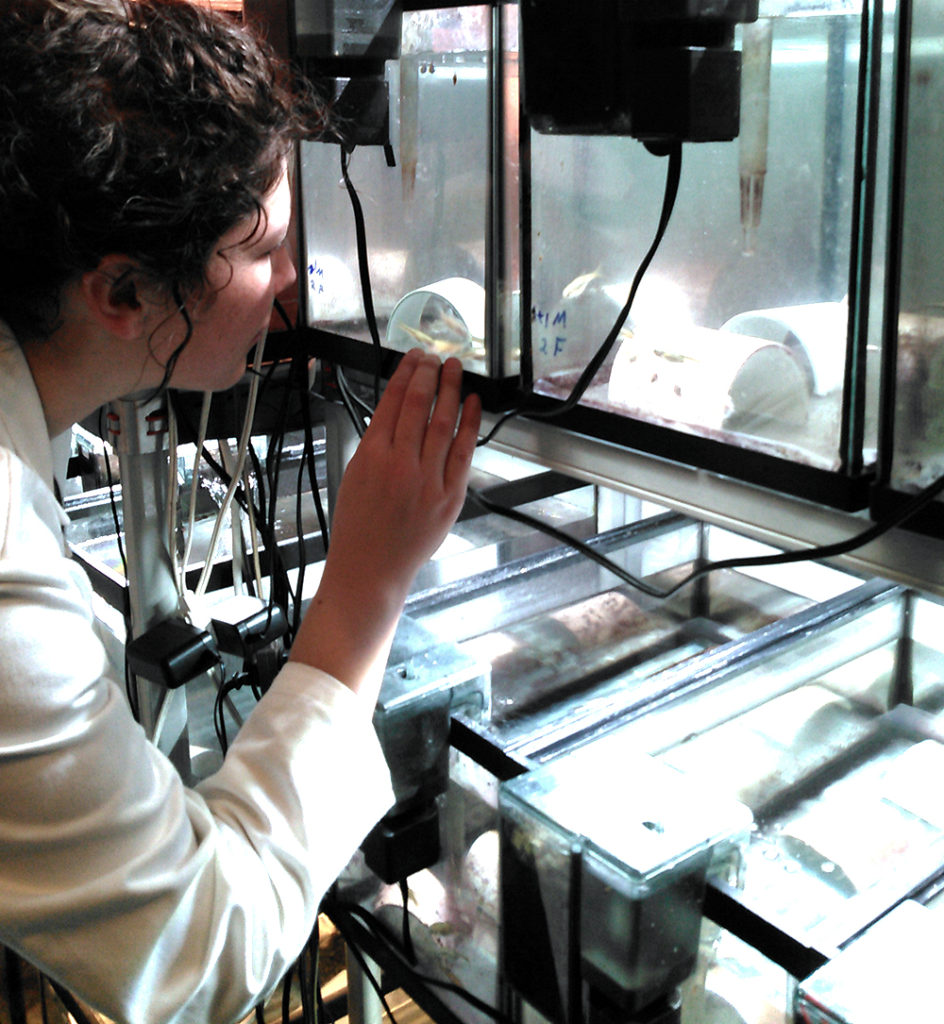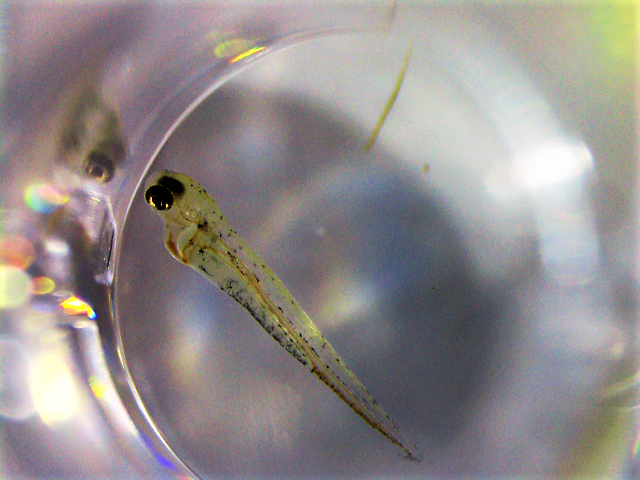- My Serial Research
-
YOU ARE
- Community member
- Future Student
- Student
- Professor
- Alumni
- Media
- Guidance counsellors
- INRS retiree
- Contact Us
- Newsroom
- Careers
- FR
-
Studies
We teach the next generation of researchers to develop scientific, social, and technological innovations.
-
Research
We find solutions through interdisciplinary research and industry or public and community partnerships.
-
INRS
We play an active role in Québec's economic, social, and cultural development.
My PhD story begins in September 2016. I moved from Tijuana (Mexico) to start my semester at Queen’s University in Kingston (Ontario). A year later, I came to Quebec to continue my doctoral studies at INRS. When I arrived in the city, I was amazed by its beauty, and the kindness and “Latin” warmth of the people. I felt at home.
Linda Lara-Jacobo, PhD student in ecotoxicology
My doctoral project, entitled “Embryotoxicité des produits pétroliers dans différentes conditions environnementales chez les poissons et les amphibiens,” was carried under the supervision of INRS Professor Valérie Langlois. As soon as they presented the project to me, it was love at first sight.
My research focused on how fish and frogs can be affected by oil. We worked together with Natural Resources Canada and the Centre d’expertise en analyse environnementale du Québec to simulate an oil spill in a 1 200 L. tank at different temperatures in freshwater. We wanted to see how the oil behaves and if its toxicity could change over time.
The Impact of Oil on Aquatic Ecosystems
Despite green energy, we continue to depend heavily on oil and recent pipeline expansions in North America increase the risks of environmental contamination. The most recent spill, on August 11 in the Republic of Mauritius, was around 1 180 metric tons of oil that had leaked from a vessel fuel tank. What we found in my PhD research project was that oil does not decrease its toxicity over time; consequently, it is even more important to prevent oil spills for the protection of our aquatic ecosystems.
What I liked most about working on this project was the opportunity to learn and meet people from all over the world. I think that knowledge allows you to grow and to have new perspectives on life. In addition, learning how to face challenges is an essential part of the process of the doctorate.
I remember that, during one of my experiments requiring fish eggs, my fish did not want to reproduce. Therefore, every morning, I would go check on them. If there were fish eggs the day was wonderful, but if there weren’t I would start talking to them and start singing some reggaeton or a salsa to see if I could convince them to reproduce (hehe). All those moments were delightful.
I learned a lot, grew a lot, and I enjoyed my research experience enormously. I am very grateful to INRS for this beautiful opportunity, and now that I have graduated, I will miss the city, the culture, the poutine and all the friends I made in this beautiful adventure called “Doctorate.”
About Linda Lara-Jacobo
Linda Lara-Jacobo recently graduated for a doctorate in Ecotoxicology at the Eau Terre Environnement Research Centre, under the supervision of INRS Professor Valérie Langlois. She has a master’s degree in Toxicology from the Center for Scientific Research and Higher Education (CICESE) in Ensenada, Baja, Mexico. Her bachelor’s degree is in Biological and Pharmaceutical Chemistry from the University of Baja California, Mexico. She has also collaborated in several community work in indigenous communities in Latin America and this year she was selected as Ambassador of My World Mexico (where the objective is to reach the Agenda 2030 for Sustainable Development Goals). She also belongs to the Scientific Diplomacy Network in Latin America and the Caribbean as a Scientific Advisor and Founder member. This year she started a science communication project on Instagram entitled “The toxic of…” (in English and Spanish, coming soon in French) where she makes infographics and recommendations for healthier and more sustainable products that we use every day, e.g. “The toxic of… Mascara”, “The toxic of… Sunscreen”, etc.
To know more about her projects:
You may also like


Share



